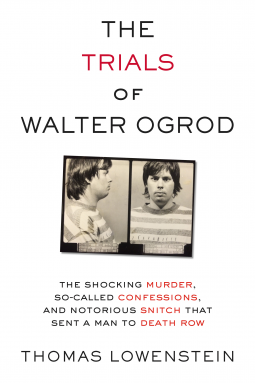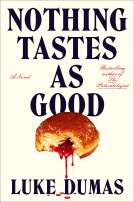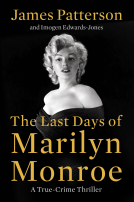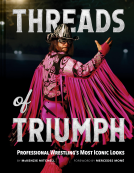Please wait... This may take a moment.
The Trials of Walter Ogrod
The Shocking Murder, So-Called Confessions, and Notorious Snitch That Sent a Man to Death Row
This title was previously available on NetGalley and is now archived.
Pub Date
Apr 01 2017
| Archive Date
Feb 15 2017
Description
The horrific 1988 murder of four-year-old Barbara Jean Horn shocked the citizens of Philadelphia. Plucked from her own front yard, Barbara Jean was found dead less than two and a half hours later in a cardboard TV box dragged to a nearby street curb. After months of investigation with no strong leads, the case went cold. Four years later it was reopened, and Walter Ogrod, a young man with autism spectrum disorder who had lived across the street from the family at the time of the murder, was brought in as a suspect.
Ogrod bears no resemblance to the composite police sketch based on eyewitness accounts of the man carrying the box, and there is no physical evidence linking him to the crime. His conviction was based solely on a confession he signed after thirty-six hours without sleep. “They said I could go home if I signed it,” Ogrod told his brother from the jailhouse. The case was so weak that the jury voted unanimously to acquit him, but at the last second—in a dramatic courtroom declaration—one juror changed his mind. As he waited for a retrial, Ogrod’s fate was sealed when a notorious jailhouse snitch was planted in his cell block and supplied the prosecution with a second supposed confession. As a result, Walter Ogrod sits on death row for the murder today.
Informed by police records, court transcripts, interviews, letters, journals, and more, award-winning journalist Thomas Lowenstein leads readers through the facts of the infamous Horn murder case in compelling, compassionate, and riveting fashion. He reveals explosive new evidence that points to a condemned man’s innocence and exposes a larger underlying pattern of prosecutorial misconduct in Philadelphia.
The horrific 1988 murder of four-year-old Barbara Jean Horn shocked the citizens of Philadelphia. Plucked from her own front yard, Barbara Jean was found dead less than two and a half hours later in...
Description
The horrific 1988 murder of four-year-old Barbara Jean Horn shocked the citizens of Philadelphia. Plucked from her own front yard, Barbara Jean was found dead less than two and a half hours later in a cardboard TV box dragged to a nearby street curb. After months of investigation with no strong leads, the case went cold. Four years later it was reopened, and Walter Ogrod, a young man with autism spectrum disorder who had lived across the street from the family at the time of the murder, was brought in as a suspect.
Ogrod bears no resemblance to the composite police sketch based on eyewitness accounts of the man carrying the box, and there is no physical evidence linking him to the crime. His conviction was based solely on a confession he signed after thirty-six hours without sleep. “They said I could go home if I signed it,” Ogrod told his brother from the jailhouse. The case was so weak that the jury voted unanimously to acquit him, but at the last second—in a dramatic courtroom declaration—one juror changed his mind. As he waited for a retrial, Ogrod’s fate was sealed when a notorious jailhouse snitch was planted in his cell block and supplied the prosecution with a second supposed confession. As a result, Walter Ogrod sits on death row for the murder today.
Informed by police records, court transcripts, interviews, letters, journals, and more, award-winning journalist Thomas Lowenstein leads readers through the facts of the infamous Horn murder case in compelling, compassionate, and riveting fashion. He reveals explosive new evidence that points to a condemned man’s innocence and exposes a larger underlying pattern of prosecutorial misconduct in Philadelphia.
Advance Praise
“Serial and Making a Murderer have focused national attention on the injustices that can result
from shoddy police investigations. The public outrage that has been generated by
these programs will be eclipsed tenfold by the events that unfold in The Trials of Walter Ogrod. Lowenstein takes readers through the convoluted twists and turns
of this case as few true crime writers have ever been able to do.”—james l. trainum, former Washington, DC, Metropolitan Police Department
detective and author of How
the Police Generate False Confessions
“The Trials of Walter Ogrod is not only a compelling read and a fascinatingly detailed
examination of a grotesquely botched murder case, it is a critically important
work that rips the lid off the stew of secrets and lies hiding beneath what
most think of as ‘criminal justice.’ Innocuous terms like ‘police and
prosecutorial misconduct’ take on a new and chilling meaning thanks to Lowenstein’s
dogged pursuit and thoughtful analysis.”—mike farrell, author of Just Call Me Mike: A Journey to Actor and
Activist and Of Mule and Man
“Serial and Making a Murderer have focused national attention on the injustices that can result from shoddy police investigations. The public outrage that has been generated by these programs...
Advance Praise
“Serial and Making a Murderer have focused national attention on the injustices that can result
from shoddy police investigations. The public outrage that has been generated by
these programs will be eclipsed tenfold by the events that unfold in The Trials of Walter Ogrod. Lowenstein takes readers through the convoluted twists and turns
of this case as few true crime writers have ever been able to do.”—james l. trainum, former Washington, DC, Metropolitan Police Department
detective and author of How
the Police Generate False Confessions
“The Trials of Walter Ogrod is not only a compelling read and a fascinatingly detailed
examination of a grotesquely botched murder case, it is a critically important
work that rips the lid off the stew of secrets and lies hiding beneath what
most think of as ‘criminal justice.’ Innocuous terms like ‘police and
prosecutorial misconduct’ take on a new and chilling meaning thanks to Lowenstein’s
dogged pursuit and thoughtful analysis.”—mike farrell, author of Just Call Me Mike: A Journey to Actor and
Activist and Of Mule and Man
Available Editions
| EDITION |
Other Format |
| ISBN |
9781613738016 |
| PRICE |
$28.99 (USD)
|
| PAGES |
336
|
Additional Information
Available Editions
| EDITION |
Other Format |
| ISBN |
9781613738016 |
| PRICE |
$28.99 (USD)
|
| PAGES |
336
|
Average rating from 9 members
Readers who liked this book also liked:
Bad Seeds
Mary Monroe
General Fiction (Adult), Multicultural Interest
A Higher Calling
Harold Earls, IV; Rachel Earls
Biographies & Memoirs, Parenting, Families, Relationships
Threads of Triumph
McKenzie Mitchell
Arts & Photography, Entertainment & Pop Culture, Sports

















